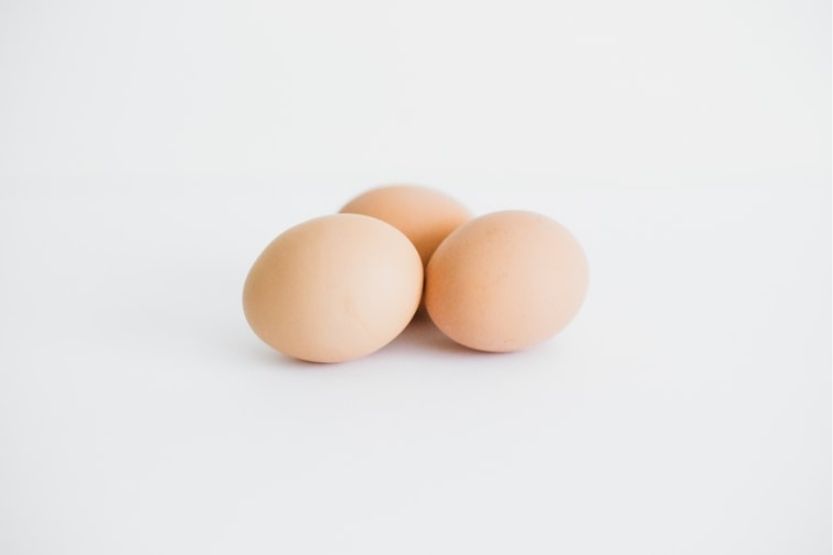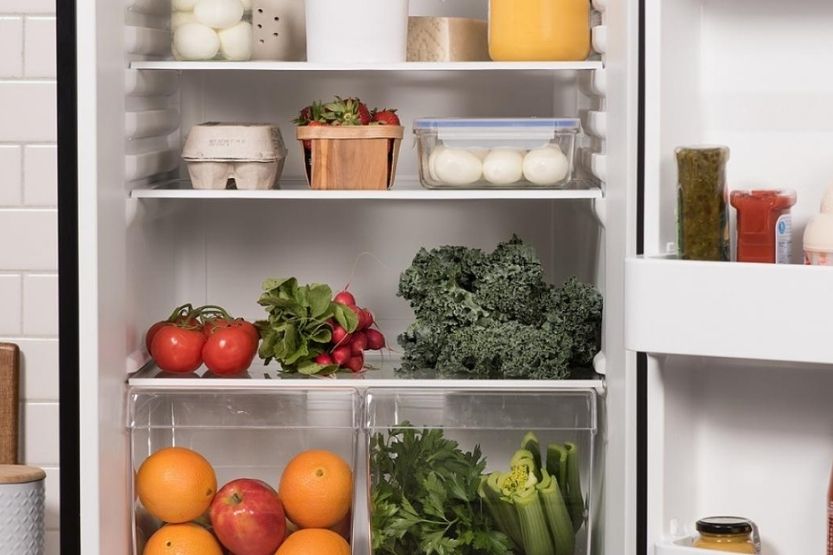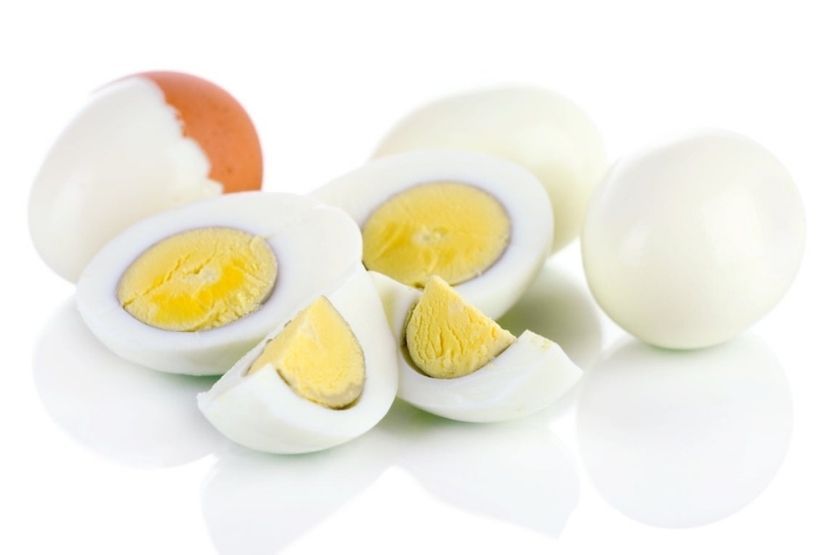Boiled eggs are convenient, nutritious, and delicious food. But a common question many have is how long they can sit out after being boiled? How long can boiled eggs sit out?
At room temperature, boiled eggs can sit out only for up to two hours. Any longer than that in the open air, it’s best to discard them. To keep boiled eggs for longer, it is best to refrigerate them with the shells on within two hours from cooking.
You can keep boiled eggs in the fridge for about a week, as long as you store them properly.
Read on to learn more about how long boiled eggs can sit out, how to know when they have gone bad, how to store them properly, and some useful tips for keeping them fresh for longer.
How Long Can Boiled Eggs Sit Out?
Boiled eggs can sit out for up to two hours at room temperature. If you want to keep them for longer than two hours, you can refrigerate them with their shells on.
According to The Washington Post, Americans eat almost 300 eggs per person in a year. That is about 100 million dozen eggs nationwide! With all these eggs being consumed, it is important to know how long they can sit out.
Boiled eggs can sit out for up to 2 hours at room temperature (68 to 77°F / 20 to 25°C). After 2 hours, the egg needs to be consumed or refrigerated (or discarded if you cannot do either). This 2-hour recommendation is set by the U.S. Department of Agriculture (USDA). [1]
If temperatures are above 90° F (32° C), boiled eggs should sit out for no more than 1 hour. So if you bring boiled eggs on a picnic or as a snack, pack them on ice in a cooler.
Bacteria that cause illness grows fast at warm temperatures (between 40° F and 140° F).
How long can unpeeled boiled eggs sit out? How long can boiled eggs sit out in shell? For both unpeeled boiled eggs, they should sit out for no longer than 2 hours. After 2 hours, put them in the refrigerator.
Should You Peel the Boiled Eggs Before Storage?
You might have wondered at one point, which is the best to do when you happen to have a surplus of boiled eggs – should you keep the shell on or off?
According to the United States Food and Drug Administration (USFDA), you should consume boiled eggs with or without shells within a week after cooking. Of course, provided that you stored those eggs properly.
The eggshells have a protective coating. This coating is destroyed during the cooking process, making it easier for bacteria to sneak inside open pores and contaminate the egg inside.

To save time, you can cook the eggs you need and peel them at the same time. Then, store them properly after.
PRO TIP: If you’re cooking a big batch of boiled eggs, one way to ensure all the eggs are consumed within one week as per USFDA advice is to write the date of when you boiled the eggs on the shell or the egg carton. This is so that you won’t forget when you cooked and stored those eggs.
You should consume pre-peeled eggs immediately. Always check for the expiration date not just for pre-peeled eggs but for any store-bought goods. For example, packages of pre-peeled boiled eggs from Great Day Farms are labeled best consumed within two to three days from the date of opening.
Pros and Cons of Buying Pre-peeled Eggs
Speaking of pre-peeled eggs – since there’s an increasing number of stores selling pre-peeled and ready-to-eat boiled eggs – it gets you asking, are those better than cooking your own?
Here are some pros and cons of buying pre-peeled boiled eggs:
| PROS | CONS |
| You can save time because they are already cooked and peeled. | More expensive (2x as the cost of raw eggs) |
| Long shelf-life (maximum of one week) | May contain preservatives (to extend shelf-life) |
| No green discoloration all over the yolk | May taste different than regular eggs due to the preservatives present |
| Great as a snack | Different texture due to being factory-prepared |
Factory-made pre-cooked and pre-peeled eggs may taste different. Some say that these eggs are stale compared to the fresh ones. If you still prefer the taste of boiled eggs, then go for those.
As for the texture, pre-cooked and pre-peeled eggs have drier, firmer yolks as against freshly cooked boiled eggs that may have yolks that are a little less “done.”
In the end, it all comes down to personal taste and preferences. The most important is that you know how to store them properly.
Now that you know the answer to the questions, “How long can boiled eggs sit out in shell?” and “How long can cooked eggs sit out?” let’s discover how to store boiled eggs properly below.
How to Properly Store Boiled Eggs?
To properly store boiled eggs, it is best to dry them out and cool them for a little while right after cooking them. Only after then can you refrigerate them.

The timing is crucial here – boiled eggs must be refrigerated within two hours from cooking. In other words, it must not be left at room temperature for more than two hours.
PRO TIP: If you’re going to store boiled eggs in the fridge, you have to leave the shells on. This is to keep its optimal taste and quality. Peel them only when you are minutes from eating them so you can still enjoy the best taste of a boiled egg.
If you, for some reason, forget to put the boiled egg in the fridge after two hours, I would suggest you prepare yourself a meal and incorporate the boiled egg instead. After all, the best time to eat that egg is right after you cooked it.
You might be wondering, would it be harder to peel later on if you refrigerate the egg after cooking? The United States Department of Agriculture (USDA) stated that the harder it is to peel eggs, the fresher they are when they are boiled.
PRO TIP: Older raw eggs are better for making boiled eggs. This is because older eggs have a larger air cell (found at the larger end of the shell between shell membranes).
To Freeze or Not to Freeze?
When stored in the freezer, the egg whites of boiled eggs become rubbery. Once defrosted the whites also tend to have an unpleasant texture.
However, it is completely okay to put the cooked egg yolks in the freezer. Also, the American Egg Board advises boiling the yolks again without the egg whites before putting them inside the freezer.
The chart below from USDA shows how long you can store egg products inside the refrigerator and freezer:
| Product | Refrigerator | Freezer |
| Raw eggs in shell | Three to five weeks | Do not freeze. |
| Raw egg whites | Two to four days | 12 months |
| Raw egg yolks | Two to four days | Yolks do not freeze well. |
| Raw egg frozen in shell by accident | Use quickly after thawing. | Keep frozen; Refrigerate to thaw. |
| Boiled eggs | 1 week | Do not freeze. |
How to Know If Boiled Eggs Have Gone Bad?
Smell the Egg
The sure-fire way to know if boiled eggs have gone bad is to smell them, especially when you know they are past the one-week mark. Boiled eggs already have a distinctly strong smell, so any unusual smell coming from your refrigerated batch is surely an indicator that the eggs have gone bad.
Check for Discoloration on the Eggs
Another indicator is discoloration on the eggs. If the egg white or egg yolk has dark brown, green, or black spots, it means the egg is already contaminated. As with any food that has been spoiled, these types of eggs are not safe to eat and should be trashed immediately.
What Does Green Ring Around the Egg Yolk Mean?
The discoloration signifies that the eggs are rotten except when you see them around the yolk of a boiled egg. This color results from a natural reaction between the iron present in the yolk and hydrogen sulfide present in the egg white. Meaning the egg has been overcooked but can still be consumed.
PRO TIP: Use your sense of smell before throwing away discolored eggs. They just might be overcooked but perfectly edible!
How long can eggs sit out when it is a soft-boiled egg? It is a whole different ball game when it comes to soft boiled eggs. The whole point of cooking soft boiled eggs is to enjoy the creamy, runny yolk, but it also means it is more susceptible to salmonella growth. Thus, it is best to consume them immediately.

While it is okay to refrigerate soft boiled eggs, you can only do so for a maximum of two days. To maximize the taste of soft-boiled eggs, I suggest you consume them when they’re still hot and runny. What do you think?
Conclusion – How Long Can Boiled Eggs Sit Out?
At room temperature, newly cooked boiled eggs can sit out for a maximum of two hours, after which these must be refrigerated for later use but only up to a week. You can keep boiled eggs for a week as long as you store them properly.
Basically, this means you need to allow the eggs to cool down before storing them in the fridge. If you won’t be consuming the boiled eggs right away, here are the tips to making the most of your efforts to prepare boiled eggs:
- Write the date you cooked the eggs on the shell of the eggs or the egg carton. Once the date falls over the one week mark, you can be sure that the eggs have started to spoil if not already rotten.
- Do not peel newly cooked boiled eggs. Refrigerate them with the shells on. This ensures you get the best taste and texture of the boiled eggs.
- Older raw eggs are way better for making boiled eggs. It will be easier to peel and are generally easier to handle than newer eggs.
- To know if boiled eggs have gone bad, use your sense of sight and smell. If any unusual smell is present or discolored differently from the usual green film on yolks of overcooked eggs, it is best to throw them out.
Again, here’s the USDA guide for storing eggs inside the refrigerator and freezer:
| Product | Refrigerator | Freezer |
| Raw eggs in shell | Three to five weeks | Do not freeze. |
| Raw egg whites | Two to four days | 12 months |
| Raw egg yolks | Two to four days | Yolks do not freeze well. |
| Raw egg frozen in shell by accident | Use quickly after thawing. | Keep frozen; Refrigerate to thaw. |
| Boiled eggs | One week | Do not freeze. |
In conclusion, we can all agree that eggs are the quintessential staple food not just in the United States but worldwide. This is because eggs are relatively cheap, easy to buy and cook, and are very versatile. You can use them in any cuisine, as a snack, and even great on their own. And lastly, eggs are one of the good sources of proteins and other nutrients.

![How Long Does DayQuil Last? [How Long It Stays in Your System] how long does dayquil last](https://howchimp.com/wp-content/uploads/2021/06/how-long-does-dayquil-last-300x200.jpg)
![How Long Does DHL Take to Deliver? [DHL Delivery Time] How Long Does DHL Take to Deliver](https://howchimp.com/wp-content/uploads/2021/05/how-long-does-DHL-take-to-deliver-300x200.jpg)
![Read more about the article How Long Does Soup Last in the Fridge? [Chicken Soup, Vegetable Soup, and More]](https://howchimp.com/wp-content/uploads/2020/11/how-long-does-soup-last-in-the-fridge-300x200.jpg)

